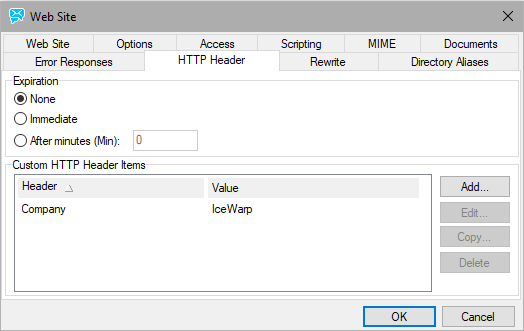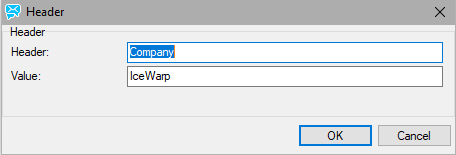HTTP Header
HTTP headers define various characteristics of the data that is requested or the data that has been provided.
e.g.: Cache-Control tells all caching mechanisms from server to client whether they may cache this object.
Cache-Control: max-age=0, no-cache, no-store, must-revalidate
Here you can define custom HTTP headers which are returned (provided) as a part of the response to a browser request.

Figure. HTTP reader tab.
|
Expiration
|
You can use this option to include an expiration HTTP header in the response. A browser compares the date in expiration header to the current one and decides whether the cached page should be shown or a new version should be requested.
-
None: The cache page would be shown if any already exists.
-
Immediate: The browser would have to request updated page anytime it tries to access that page.
-
After minutes: It sets the expiration period to the current time plus the number of minutes specified.
|
|
Custom HTTP Header Items
|
This allows you to define special headers that will be returned to a browser as a part of the response.
Press the Add button to open the Header dialog box:

Specify the name of the Header and the content (Value) you wish to insert.
|



